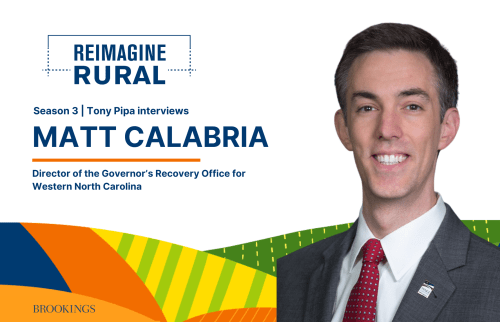Fifty years after President Johnson called for an expanded minimum wage in his State of the Union speech that launched the War on Poverty, the nation is once again debating the merits of a minimum wage hike.
This is timely, if not overdue, as today’s federal minimum wage of $7.25 an hour is effectively $2.15 lower than it was in 1964, after adjusting for inflation. (Many states today do have minimum wages above the federal level.)
More than that, however, the profile of minimum wage workers has shifted dramatically in the last few decades. Rather than teens working after school or summer jobs, according to the Economic Policy Institute, the typical worker likely to be affected by a raise in the minimum wage today is a woman in her 30s working full-time, with a family to support.
And like most Americans, minimum wage workers are suburbanites.
They include parents like Shawndrakae Mack, a single mom of two teenagers who works at the McDonald’s on Edisto Island, a suburban beach community near Charleston, South Carolina, and earns $7.60 per hour. Mack told the Charleston Post and Courier that she relies on food stamps and Medicaid to supplement her income and has trouble affording the athletic equipment her kids need for school.
Or they are workers like Semaj Ransom, 39, who was hired in February at Jack in the Box in the Bay Area suburb of Hayward, California, for a full-time position at $8.50 an hour. But, he says, he rarely gets a full schedule. Ransom told the San Jose Mercury News his hours fluctuate drastically week-to-week, “so you can’t even save.”
Like Mack and Ransom, roughly one in four workers living in the suburbs works in a low-wage occupation (i.e., an occupation where at least 25 percent of workers make less than $10 an hour). Many are employed in retail, restaurant, and other low-wage service jobs. In fact, according to our colleague Jane Williams’ analysis of American Community Survey data, suburbs are home to two-thirds of all workers employed in such jobs in the nation’s largest metro areas.
Given that suburbs are where the bulk of low-wage work and workers are found, Alan Berube recently observed that “it stands to reason that measures to boost their wages, like minimum wage and living wage campaigns, could be important tools for addressing the economic hardships facing suburban workers and communities.”
Some argue that raising the minimum wage beyond $10 an hour will be a job killer. Others worry that a higher minimum wage could push up prices or create “border wars” with neighboring locales that keep wages low to attract businesses.
But as the Washington Post recently reported, new research from Arindrajit Dube at the University of Massachusetts-Amherst concludes that increasing the minimum wage would reduce poverty, without detectable impacts on employment.
Workers in suburban SeaTac in Washington State, where voters approved a raise in the minimum wage to $15 an hour, are certainly pleased. Many families say this measure will enable them to put healthier food on the table, afford car repairs or save for an emergency fund. (A recent court ruling, however, said that SeaTac voters do not have the authority to raise wages for SeaTac airport workers, who operate under the auspices of the local port authority.)
But as Alan pointed out, piecemeal efforts like SeaTac’s are not a long-term solution. Creative responses and jurisdictional collaboration are necessary to combat these new challenges and address suburban poverty at scale. That is also true for the minimum wage.
Washington, D.C., is a case in point. Local leaders there created a regional pact to all raise the minimum wage. The city council voted to increase the city’s minimum wage in stages to $11.50, and the adjoining Maryland suburban counties of Montgomery and Prince George also voted to raise their minimum wages to $11.50.
Suburbs should be allies for larger policy efforts to raise minimum wages at the national and state levels. Five decades on from President Johnson’s speech, President Obama is likely to call for a federal minimum wage increase in his State of the Union address later this month. For the many suburban families who are working hard and struggling to survive on meager wages, those increases couldn’t come soon enough.
The Brookings Institution is committed to quality, independence, and impact.
We are supported by a diverse array of funders. In line with our values and policies, each Brookings publication represents the sole views of its author(s).


Commentary
Suburbs on $7.25 an Hour
January 13, 2014